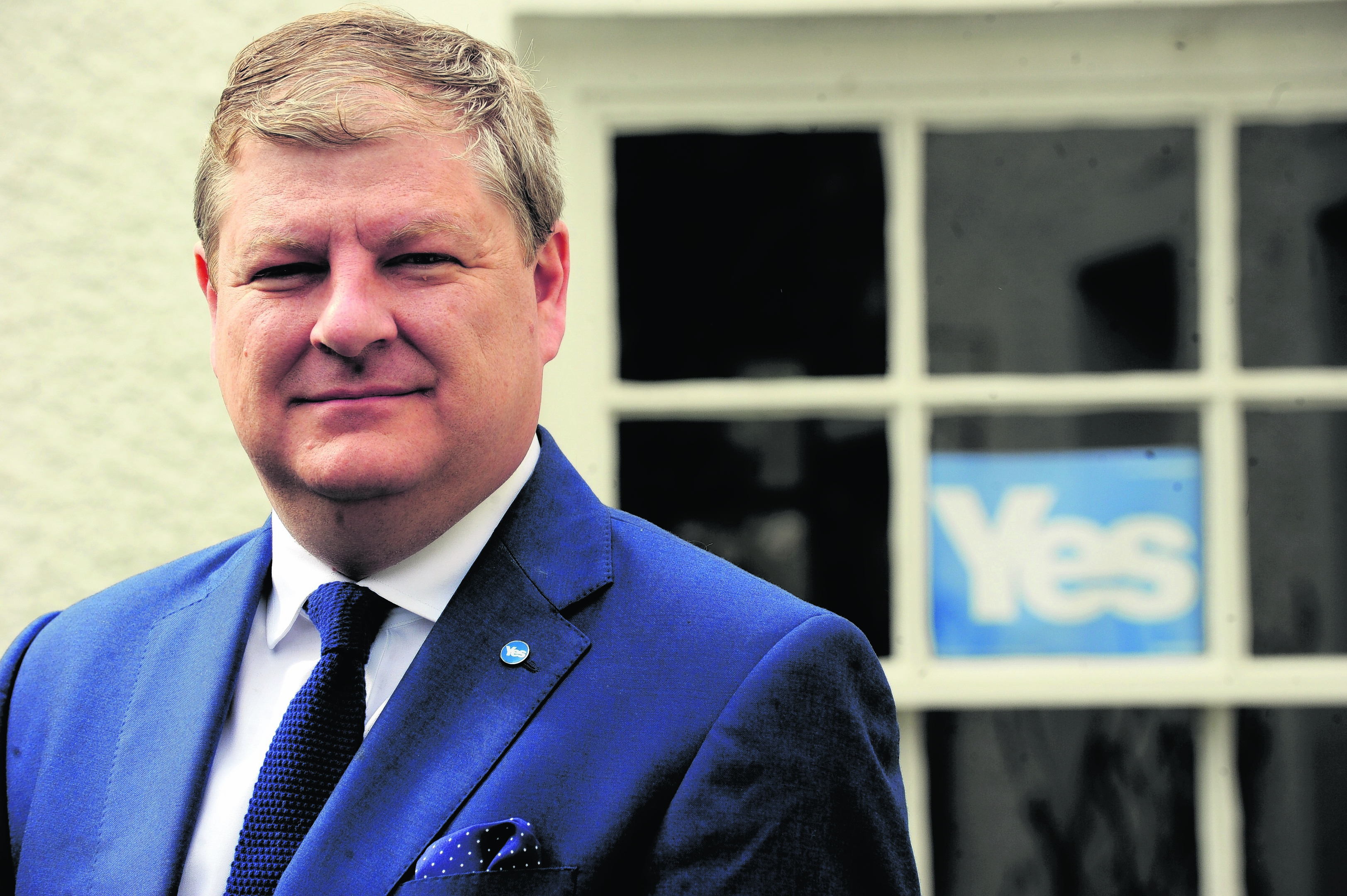SNP defence spokesman Angus Robertson talks about his vision for defence in an independent Scotland.
Independence offers a historic opportunity for improving conventional defence in Scotland and removing Trident – and we get that opportunity next month.
At its heart is a commitment to deliver the defence and security priorities of people in Scotland, rather than leave it to Westminster governments that we often don’t elect and which make bad decisions on our behalf.
Independent countries make defence decisions, and Scotland should too.
The Scottish Government has provided an impressive amount of detail in the white paper chapter on “international relations and defence”.
Plans are based on key domestic, regional and foreign-policy priorities, and will deliver the appropriate conventional capabilities – providing security for Scotland, our neighbours and allies.
There are very clear and welcome commitments to raising personnel numbers and conventional defence spending in Scotland, retaining military bases, widening capabilities including the procurement of frigates and maritime patrol aircraft and enhanced terms and conditions for servicemen and women.
The Scottish Government is crystal clear on the speediest, safest departure of nuclear submarines from the Clyde as a key priority, with Faslane having an important future as Scotland’s main conventional naval base and Joint Forces Headquarters.
The white paper stresses the importance of properly phasing personnel, organisational and capability changes. This is important for our national defence, but also for servicemen and women, their families and defence-dependent communities.
Currently serving personnel will be able to transfer to the Scottish Defence Force (SDF) and there will be significant improvements in terms and conditions of service.
This is great news for personnel and their families who want a long-term future in Scotland, and to make better decisions about their home life, schooling arrangements for their children and a more settled and enhanced career path in Scotland.
Under Westminster, Scotland does not have what it needs – and has what it doesn’t want when it comes to defence.
With independence, Scotland will make defence decisions – better for Scotland, but also beneficial to our neighbours and allies.
We will be able take our regional and collective security responsibilities seriously within Nato as a conventionally armed country.
